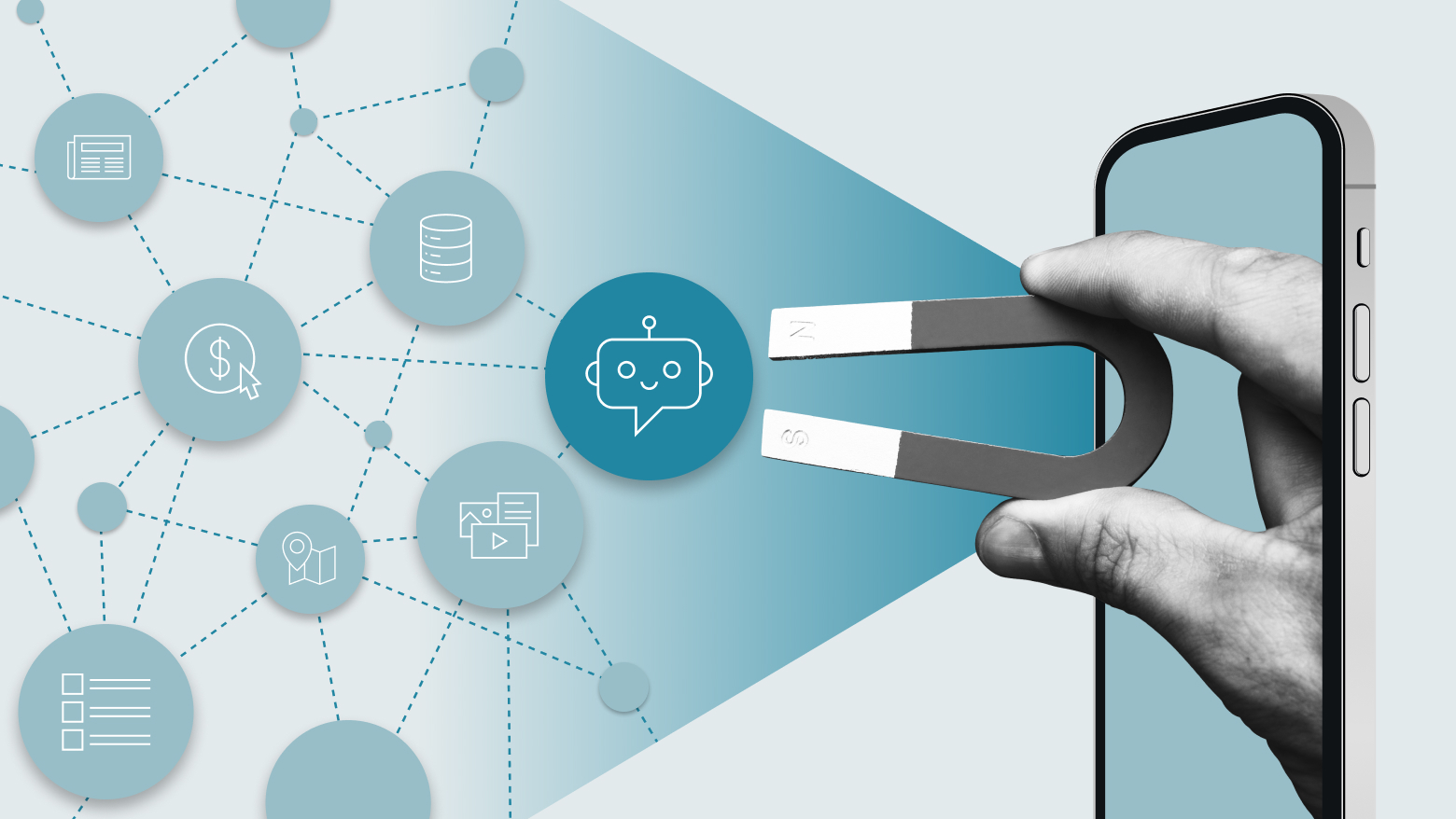
The financial services industry has embarked on a transformative journey, entering the Artificial Intelligence (AI) phase of the digital marathon. Starting with the advent of the internet, organizations have undergone various stages of digitalization, and the emergence of AI is now reshaping the industry's landscape.
This disruptive force is unraveling the traditional bonds that held together components of financial institutions, paving the way for unprecedented innovations and novel operating models. With AI at the forefront, the financial sector is experiencing a technological revolution that goes beyond mere automation.
It's a shift that addresses customer demands for more innovative, safer, and more convenient ways to access, spend, save, and invest money. As the market for AI in finance continues to grow, estimated at $9.45 billion with a projected 16.5 percent growth by 2030, it becomes imperative to explore the key areas driving this momentum and recognize the leading companies spearheading innovation in this domain. How is the financial sector using AI? This question serves as the focal point for understanding the dynamic impact of artificial intelligence on finance.
How Artificial Intelligence Is Transforming Financial Services
AI is a branch of computer science that focuses on making tools that are smart enough to work and do things like people. These robots can learn how to organize, read, and make predictions based on the data they have. The Banking, Financial Services, and Insurance (BFSI) Industry needs it now more than ever, and it's changing how goods and services are provided.
Applications Of AI In Financial Services
FIs are putting AI algorithms into every financial service because they are suitable for business and because tech-savvy customers are putting pressure on them to do so. Here's how they're doing it.
AI In Personal Finance
People want to be financially independent, and giving people the tools to handle their own money is what's driving the use of AI in personal finance. Any financial organization that wants to be a leader in its field needs to use AI.
This is true whether they are using chatbots powered by natural language processing to help people with their money 24 hours a day, seven days a week, or personalizing insights for wealth management solutions.
AI In Consumer Finance
AI's ability to stop fraud and hacking is one of the most critical business uses for it in finance. People are looking for banks and other financial services that offer safe accounts.
This is especially true since Insider Intelligence says that by 2023, losses from online payment scams will reach $48 billion per year. Artificial intelligence (AI) can look at patterns and find breaks in them that people would miss.
AI In Corporate Finance
An essential use of AI in business finance is that it can better predict and evaluate loan risks. AI technologies like machine learning can help businesses that want to grow their value by making it easier to get loans and lowering their financial risk.
As accountants, analysts, treasurers, and investors work to help a company grow over the long term, AI can also help cut down on financial crime by finding fraud more quickly and noticing strange behavior.
AI Companies In Financial Credit Decisions
Good credit is king. One study found that 27% of all payments were made with banks. Loans are essential to people for more than just making payments easy. Being able to get good credit makes it easier to get loans, get jobs, and rent homes. Getting loans and credit cards is an essential process because so many things in life depend on credit records.
Underwrite.Ai
Underwrite.ai uses AI models to look at thousands of financial factors from credit bureaus to figure out how creditworthy people and small businesses are who want to borrow money.
The platform collects data from portfolios and uses machine learning to look for trends and figure out how applications will be handled.
Zest AI
A platform called Zest AI, which AI powers, helps companies evaluate borrowers who have little or no credit background or information. The platform uses thousands of data points and makes them public, which helps lenders get a better idea of people who are usually thought of as "at risk."
The business said that auto lenders who used machine-learning screening cut losses by 23% yearly, got better at predicting risk, and cut losses by more than 25%.
Scienaptic AI
Scienaptic AI offers a range of financial services, one of which is a credit underwriting tool that helps banks and credit institutions be more open and cut costs at the same time.
To make credit choices smarter, its underwriting platform uses non-tradeline data, adaptive AI models, and records that are updated every three months.
Datarobot
Machine learning software from DataRobot is used by data scientists, business analysts, software engineers, executives, and IT workers. Businesses and financial institutions can quickly and accurately make predictive models with DataRobot's help, which helps them make decisions about things like credit card fraud, digital wealth management, direct marketing, blockchain, loans, and more.
Alternative lending companies use DataRobot's software to make better underwriting choices by guessing which customers are more likely not to pay back their loans.
Ocrolus
Ocrolus makes software for handling documents that use both machine learning and human verification. Businesses, groups, and people can use the software to look over financial documents more quickly and accurately.
Ocrolus' software looks at bank records, pay stubs, tax returns, mortgage forms, invoices, and other things to see if a person can get a loan. It focuses on mortgage lending, business lending, consumer lending, credit scoring, and Know Your Customer (KYC).
Enova
Enova uses AI and machine learning in its lending platform to provide improved credit assessment and financial analytics.
The company wants to help people and small businesses with bad credit get the loans they need to deal with real-life issues like emergency costs and get bank loans for small businesses without making things too complicated for either party.
How AI Can Solve Real Challenges In Financial Services
Speech Recognition
You can improve your service by turning voicemails and sales calls into text. This will help you learn more about your customers and give them a better experience.
Sentiment Analysis
Find the sentiment in a text that matches the most common emotional opinion using natural language AI. This can be used for things like financial research, chat data sentiment, and more.
Anomaly Detection
Find things that don't seem right, like fraud, financial crime, spoofing in dealing, and cyber threats.
Recommendations
Give customers concrete advice on financial goods and services, like investment tips or bank offers, based on their financial goals, how they interact with others, and their risk preferences.
Translation
With fast, dynamic machine translation at scale, you can make your content, like financial news and apps, multilingual so that you can better connect with your customers and reach more people wherever they are.
Document Processing
You can get structured and unstructured data from documents, then search, analyze, and store this data for processes that involve a lot of documents, like loan servicing and finding business opportunities.
Image Recognition
Get information from pictures and videos to speed up the process of insurance claims by evaluating damage to property like homes or cars, or make the hiring process faster by verifying customers' identities in a way that is compliant with Know Your Customer (KYC) rules.
Conversations
Make your customers happy with AI-powered contact center experiences that feel like they are talking to a natural person, like a banking concierge or customer service center. This will cut costs and free up your human workers' time.
Make your apps, websites, digital platforms, and virtual tools more intelligent and easier to use so that people can change how they handle their money and get more ways to do it.
Benefits Of AI In The Financial Sector
Here is a list of the most essential benefits of AI in banking and finance right now, along with some of the risks and problems that financial services companies face when they use AI.
Reduction In Operational Costs And Risk
Even though banking is mainly done online, there are still many tasks that need to be done by hand and involve a lot of paper. Banks face considerable business costs and risk problems in these steps because people can make mistakes.
Improved Customer Experience With Chatbots
People made fun of banking hours for a reason. It seemed like banks were never open when you needed them the most, like late at night or on the weekend or a holiday. In the past, call centers were known for having long wait times and often not being able to solve customers' problems when they finally got an operator.
Improved Fraud Detection And Regulatory Compliance
When it comes to finding fraud, computers really are better than people. Using different methods, they can do a tremendous amount of math. They only mess up if they are poorly designed. People often make mistakes, especially when doing the same thing over and over again.
Improved Loan And Credit Decision-Making
In the same way, banks are using AI-based systems to help them make better, safer, and more profitable choices about loans and credit. As things stand, many banks still only look at credit scores, credit histories, customer references, and banking transactions to decide if a person or business is creditworthy.
Automation Of The Investment Process
Last but not least, some banks are going even deeper into AI by using their innovative systems to help them make investment decisions and do study for their investment banking departments.
Firms like UBS in Switzerland and ING in the Netherlands use AI to search the markets for untapped investment chances and feed that information into their algorithmic trading systems. People are still making all of these investment choices, but AI systems are finding new opportunities by better modeling and discovering them.
What Are The Cons Of AI In Financial Sectors
There are many good things about using artificial intelligence (AI) in the financial field. However, it is essential to be aware of and deal with the problems and issues that could come up with this technology. Here are some terrible things about AI in the business world.
Bias And Fairness Concerns
When it comes to banking, one of the biggest problems with AI is that it could lead to biased decisions.
If the training data used to make AI models has skewed information in it, the algorithms could make inequality worse or even keep it going. This can lead to unfair results, especially when it comes to credit scores and loan applications.
Lack Of Transparency
A lot of AI systems, incredibly complex deep learning models, work like "black boxes," which makes it hard to figure out how they make decisions.
Lack of openness can be a big problem in the financial world, where being accountable and knowing why choices are made are very important. Financial companies need to make sure that AI systems can be explained and give them information about how they make decisions.
Security Risks
Cyberattacks are most likely to happen in the banking sector, and adding AI to systems makes security harder. Because AI systems handle private financial information, hackers are interested in them and look for ways to break in.
Making sure that AI apps are highly secure is essential to stop data breaches, financial fraud, and other nasty things.
Overreliance On AI
AI can help people make better decisions, but relying too much on automatic systems is dangerous. Financial companies need to find a way to use AI to save time and money while still keeping human oversight.
Using AI alone without any help from a person can cause mistakes and system failures that were not expected, especially when understanding the situation and making decisions based on multiple factors is needed.
Regulatory Compliance Challenges
The financial sector is governed by strict rules that are meant to protect consumers, make businesses clear, and hold them accountable. The fast development of AI technology can make it harder to follow the rules because they change so quickly.
Financial institutions have to keep up with changing rules and make sure that their AI applications follow moral and legal guidelines.
The Future Of AI In Finance
Artificial intelligence is becoming more common in all fields, so it's not a surprise that it's taking off in banking significantly since COVID-19 has changed how people talk to each other. AI has had a massive effect by streamlining and combining jobs and analyzing data and information much faster than humans can. By 2030, experts think it will save the banking industry about $1 trillion.
AI technologies are becoming more and more critical to everyday lives, and banks need to use them on a large scale to stay relevant. To be successful, the company as a whole needs to change at many levels.
It's also important to know that millennials and "Gen Zers" are becoming the "largest addressable consumer group" for banks in the US. This means that banks are looking to increase their IT and AI budgets "to meet higher digital standards" since younger people tend to prefer online banking. A massive 78% of millennials say they won't go to a bank if they can avoid it.
Frequently Asked Questions
How Is AI Used In The Finance Sector?
AI is used in finance for tasks like algorithmic trading, fraud detection, customer service chatbots, and personalized financial advice.
How Is AI Changing The World Of Finance?
AI is transforming finance by enhancing efficiency, automating processes, and providing data-driven insights for better decision-making.
What Is The AI Trend In Financial Services In 2023?
In 2023, the AI trend in financial services includes increased emphasis on explainable AI, enhanced cybersecurity measures, and expanded use of AI in customer engagement.
How Does AI Affect Parts Of The Financial Markets?
AI is impacting financial markets through algorithmic trading, predictive analytics for investment decisions, and improved risk management, leading to increased market efficiency and responsiveness.
Conclusion
The financial sector is leveraging AI in multifaceted ways to drive innovation, improve efficiency, and enhance customer experiences. From personalized financial planning to risk management and fraud prevention, AI is proving to be a transformative force in an industry that demands adaptability and foresight.
As the financial landscape continues to evolve, the responsible and ethical use of AI will be paramount in maintaining trust, ensuring fairness, and unlocking the full potential of artificial intelligence in the financial sector. How is the financial sector using AI? It is not just a question but a reflection of an ongoing revolution that is reshaping the future of finance.
This disruptive force is unraveling the traditional bonds that held together components of financial institutions, paving the way for unprecedented innovations and novel operating models. With AI at the forefront, the financial sector is experiencing a technological revolution that goes beyond mere automation.




